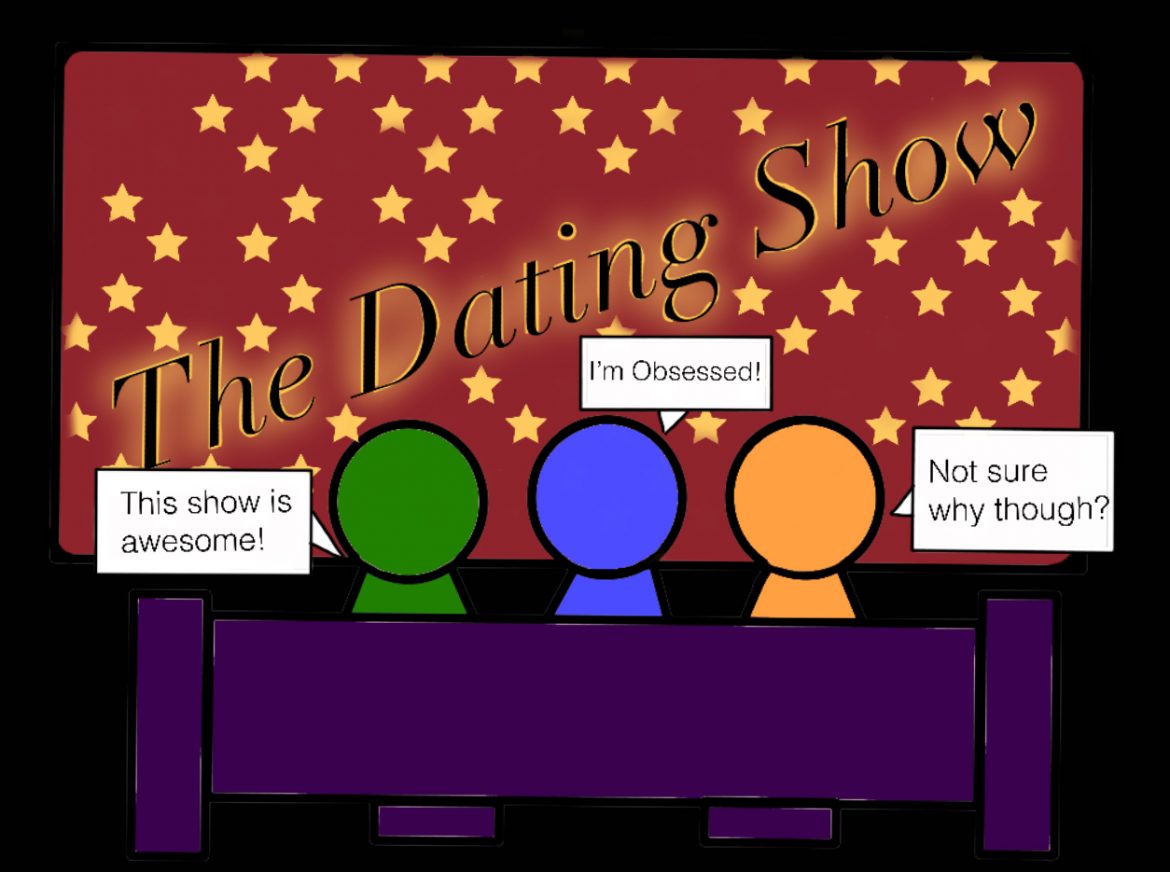Photo Credit: Nisa Notta
Viewers should approach these shows with a critical mindset.
Ethan Chan, Senior Staff Writer
I have never watched a dating show myself. However, I am acquainted with many individuals who religiously follow them for entertainment and to mold their “ideal” type of partner. Despite the romanticized portrayal of love on reality dating shows, the hidden costs often lurk beneath unrealistic body standards and the captivating drama that many of us have come to enjoy. While shows like Too Hot to Handle and Love Island promise a fairy-tale romance, life behind the scenes is not always as glamourous. Consequently, while our screens illuminate with idealized relationships and meticulously curated dates, our mental well-being quietly bears the burden of these unattainable depictions.
One significant issue lies in the portrayal of relationships as a race to the finish line — often marriage or committed partnerships. For instance, Love is Blind zooms in on fast-paced dating, highlighting the significance of instant and effortless love. While this may ring true for some, such shows can instill feelings of inadequacy in viewers if their relationships don’t measure up in terms of speed or style. “Too Hot to Handle” takes it a step further by hypersexualizing dating, where contestants face financial penalties for engaging in sexual intimacy. Despite the excitement or entertainment value, the premise reinforces the notion that love revolves solely around physical attraction, neglecting the emotional depth crucial for healthy relationships.
Moreover, emotions are frequently wielded as weapons in dating shows, with gaslighting, manipulation, and emotional abuse fueling dramatic conflicts and love stories and ultimately ramping up the storyline for a climactic finale or cliff-hanger. In a healthy relationship, equal and respectful communication should take precedence. Persistently demeaning and verbally abusing your “partner” in the name of love on dating shows can perpetuate harmful stereotypes about acceptable relationship dynamics. However, while dating shows primarily focus on dating, many, if not all, of these shows feature unrealistic body standards. According to a study conducted by the Mental Health Foundation, 24% of those aged 18 to 24 express concerns about body image due to reality TV, with 23% of them reporting higher rates of mental health disorders. Interestingly, grappling with mental health issues is not addressed nor promoted in many of these dating shows, with some even sweeping them under the rug.
What measures can be taken to mitigate these detrimental effects? As viewers, we should approach these shows with a critical mindset, recognizing that the images portrayed are largely artificial. Promoting media literacy across social platforms can aid the audience in distinguishing between entertainment and reality. Although I do not anticipate TV networks like Netflix to discontinue or alter these shows due to their popularity and profitability, viewers should consume them with a newfound sense of discernment. Ultimately, our mental well-being is too steep a price to pay for the pursuit of reality TV perfection.




